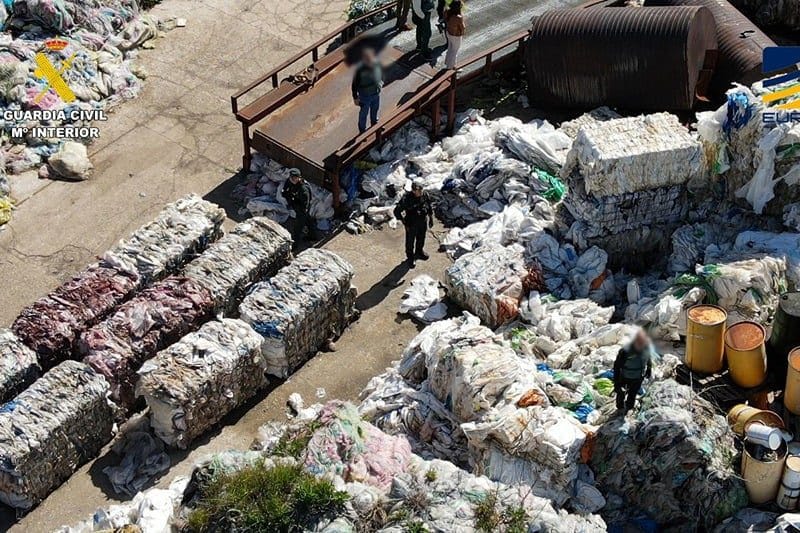A large-scale investigation conducted by the Spanish Civil Guard has unveiled an international network for the trafficking of plastic waste, with Morocco among the recipient countries. The operation, dubbed Finoplast, uncovered the illicit export of over 41,000 tons of waste, primarily agricultural, coming from France and Portugal, then transported via Spain to several third countries, including Morocco, India, Turkey, Malaysia, and Brazil.
According to Spanish authorities, 22,785 tons of this waste were fraudulently exported under false pretenses, notably through falsified environmental documents or by passing them off as recyclable raw materials. Some shipments were concealed in disguised containers, with “clean” plastic bales on the surface to deceive visual inspections.
The Spanish sites from which the waste departed – notably in Bierzo, La Bañeza (province of León) and Alberic (Valencia) – often operated without legal authorization, in total violation of European standards. The investigation reveals a blatant lack of prior treatment, despite the hazardous nature of the transported waste. Toxicological analyses confirmed the presence of harmful substances in 15 of the 16 samples taken.
Five people have been arrested and fifteen others are being prosecuted in connection with the case. The investigation is supervised by the investigative court no. 1 of Ponferrada and the Spanish environmental prosecutor’s office, with the support of Europol, Eurojust, and the European program Copernicus, which helped map illegal landfills.
This case highlights the persistent flaws in the control of international waste trade and raises questions about the filtering mechanisms in place in recipient countries. For Morocco, this issue poses a sensitive question regarding environmental traceability and waste import controls, in an increasingly demanding context of sustainability and ecological sovereignty.


